Showing 265–276 of 1201 results

This book vividly analyses the Islamic legal theory and its development in varied phases, encompassing various regions, intellectual approaches and social practices, making it an appropriate legal system. It also features the great jurists of Central Asia and their monumental works.
Central Asia, since eighth century ce, has remained as one of the heartlands of Islam. Mawara al-Nahr (Transoxiania) is a name to reckon with in the annals of Islamic history and jurisprudence. The Abbasid rule (ce 7501258) in this steppe region paved the way for setting the Islamic culture, and the reflection of positive results and Islamic ideology in all facets of life, nourishing the Islamic tradition and immensely contributing to the various socio-political institutions as well as diverse fields of knowledge. The early development of Islamic sciences and the involvement and contribution of Muslim intellectuals of Central Asia in their further growth remain as a splendid chapter of the Islamic history.
This book represents Islam as a constructive force that nourished scholarship in varied Islamic sciences, especially in Islamic jurisprudence. It vividly analyses the Islamic legal theory and its development in varied phases, encompassing various regions, intellectual approaches and social practices, making it an appropriate legal system. Central Asia, along with other Islamic intellectual centres like Baghdad, Basrah, Kufa and Madina, maintained the lure of standardized scholarship.
This volume, while featuring the great jurists of Central Asia and their monumental works to the Islamic jurisprudence, initiates a debate on the relevance of Islamic legal theory and its interpretation in the contemporary socio-political scenario, thus providing certain possibilities of rediscovering Islamic jurisprudence for the present times. A book of high academic value, it should impress all in the field of Islamic history and legal system.
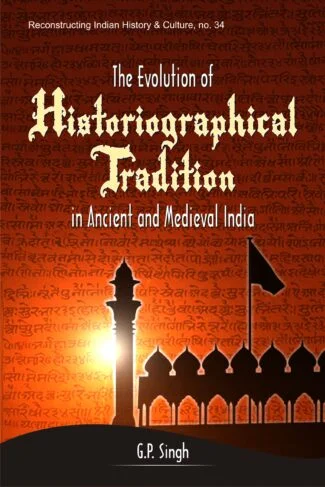
This volume attempts to present a systematic and comprehensive history of historical writing in ancient and medieval India. It discusses the beginnings of historical tradition, Buddhist and Jain traditions of historiography, writing of historical biography, chronicles, va§÷àvalã, and the tradition of historical writing in all states of India.
In India, historical writing was a tradition that evolved in different ways in the ancient, medieval and modern periods of history. Several traditions of historiography evolved during the centuries. This volume is an attempt to present a systematic and comprehensive history of historical writing in ancient and medieval India based on many original sources and works written in the modern times.
A well-researched, painstaking study, the book broadly discusses the beginnings of historical tradition, Buddhist and Jain traditions of historiography, and writing of historical biography, chronicles, vamsavali and other historical works, as well as the tradition of historical writing in South India. One of its main concerns is to bring out the contributions of people of different religions to the evolution of the tradition of historiography. It sheds light on the historical and semi-historical works of ancient and medieval historians of Indians to dispel the argument that ancient Indians had no tradition of historiography. It shows that ancient Indians had indeed a clear conception and perception of history, taking history as the soul of the nation. It states that conscious of the fact that the culture and civilisation of a country got reflected through its history, they took pains to preserve the historical records of the past.
The book will prove extremely useful to fill the vacuum existing in our knowledge about historians and historiography in ancient and medieval India.
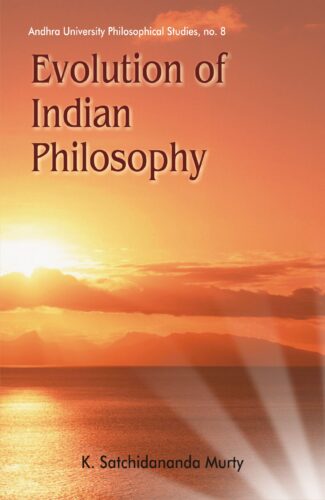
This book focuses on the evolution of philosophy in India with reference to socio-political and economic conditions, through which one can learn that life and thought are invariably interconnected with polity and persons, economy and environment. This book is unique in the sense that it contains a review in the conclusion; and the philosophical heritage has been evaluated in its introduction
In the pattern of Bertrand Russells History of Western Philosophy, this book focuses on the evolution of philosophy in India with reference to socio-political and economic conditions, through which one can learn that life and thought are invariably interconnected with polity and persons, economy and environment. The first chapter demonstrates the socio-political, geographical and racial causes for the formation of human thinking, followed by a chapter on what philosophy is and the nature of Indian philosophy. The Vedas and Upanishads, the Bhagavad-Gita, and about five schools of Vedanta, including Kashmir Shaivism were discussed at length in three different chapters. Another three chapters deal with Carvakas, Jainism and Buddhism; and one on Samkhya and Vaisheshika. This book is unique in the sense that it contains a review in the conclusion; and M.N. Roy has evaluated the philosophical heritage in its introduction. M.N. Roy has remarked that the chapters are of great importance methodologically, and as such constitute the more valuable part of a commendable work of scholarship. It is useful as a reference book for students and scholars as well as general readers interested in understanding the evolution of ancient Indian thought, and broadens the horizons of their knowledge of Indian philosophy.

This book focuses on the evolution of philosophy in India with reference to socio-political and economic conditions, through which one can learn that life and thought are invariably interconnected with polity and persons, economy and environment. This book is unique in the sense that it contains a review in the conclusion; and the philosophical heritage has been evaluated in its introduction
In the pattern of Bertrand Russells History of Western Philosophy, this book focuses on the evolution of philosophy in India with reference to socio-political and economic conditions, through which one can learn that life and thought are invariably interconnected with polity and persons, economy and environment. The first chapter demonstrates the socio-political, geographical and racial causes for the formation of human thinking, followed by a chapter on what philosophy is and the nature of Indian philosophy. The Vedas and Upanishads, the Bhagavad-Gita, and about five schools of Vedanta, including Kashmir Shaivism were discussed at length in three different chapters. Another three chapters deal with Carvakas, Jainism and Buddhism; and one on Samkhya and Vaisheshika. This book is unique in the sense that it contains a review in the conclusion; and M.N. Roy has evaluated the philosophical heritage in its introduction. M.N. Roy has remarked that the chapters are of great importance methodologically, and as such constitute the more valuable part of a commendable work of scholarship. It is useful as a reference book for students and scholars as well as general readers interested in understanding the evolution of ancient Indian thought, and broadens the horizons of their knowledge of Indian philosophy.

The book addresses the major concerns of India’s policies relating to the Indian Ocean that need to be viewed to ensure the security of maritime borders to facilitate international trade as well as strengthen the comprehensive security of the country from various sources of threat.
The volume takes up concerns that need to be viewed to ensure the security of maritime borders to facilitate international trade as well as strengthen the comprehensive security of the country from various sources of threat. It first gives a description of the Indian Ocean Rim countries and their historical background, the geo-economic and geo-strategic importance of the Indian Ocean as well as its many aspects like weather and minerals, and Indias maritime and security strategy. Taking up the political dimensions of maritime security, it deals with important topics like the International Law of the Sea, Maritime Law, Indias policy, maritime boundaries and Indias maritime disputes. The economic aspects of India’s maritime security are covered in detail. It also analyses the power struggle of the major powers in the Indian Ocean. Extensive in its coverage and analytical data as well, it covers the Indian Navy and armaments and other armed forces with reference to the Indian Ocean security, the foreign policy of India with respect to Indian Ocean Rim countries and the futuristic directions of its maritime strategy in great detail. The volume contains figures including maps and graphs which ably support the text. The book is an in-depth study of Indias maritime strategy and its link with national security and therefore is sure to interest scholars and students involved in research in this field.
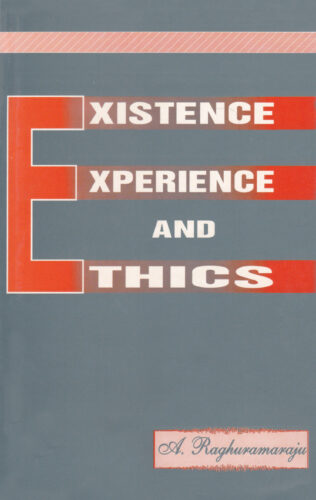
The essays study different dimensions of the modern autonomous individual existence such as the pre-selfconscious self and the minds insane aspects. They discuss artistic, especially aesthetic, experience, and ethics and moral philosophy.
This book, a Festschrift for Professor S.A.Shaida and dealing with matters close to his heart, brings together a wide spectrum of essays written by scholars from philosophy, social sciences, feminism, literature and religion; and engages with some of the most fundamental themes in the domains of existence, experience and ethics. The first section represents different interrogations of the autonomous individual existence postulated by modernity. Each of the essays here attempt to broaden the ground of existence by highlighting aspects of its underside: the mental, the insane aspects of mind, the experience of pre-selfconscious self, the history of autonomous individual before its invention in modern Europe, and such other forms of existence as you and we. The essays in the second section discuss experience, more specifically artistic experience, which constitutes an important facet of human existence. The discussion centres on aspects of the debate between purists and realists in aesthetics, and articulates the need to go beyond these polarities. From an aesthetics that is concerned with the heightened level of experience, the next section deals with issues of ethics and moral philosophy and engages questions of universalism, liberalism, objectivism, fact-value dichotomy, phenomenology of values and so on. The last section traverses the ground of inter-religious interaction and dialogue. The uniqueness of this volume lies in its multidisciplinary space of articulation and would be of considerable interest to teachers and students in the history of philosophy, religion, social sciences, aesthetics and literature. The methodological ground leared by most of the papers could lend a further critical edge to contemporary studies of the modern disciplines.
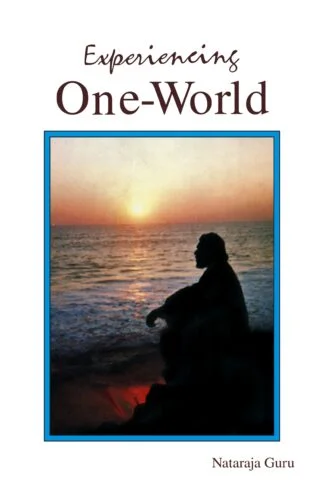
An eminent exponent of Vedantic philosophy here suggests that the one-world dream could become real if Man learnt to cultivate the unitive vision a one-world consciousness that would tune Man to look towards world fraternity.
Is One World a Utopian ideal? Or just a dream in a world which today, more than ever before, stays riven by parochial, deep-rooted barriers : nationalistic, ethnic, religious, linguistic and many other, leave alone a whole diversity of divisive isms? An eminent exponent of Vedantic philosophy here examines this question afresh to suggest that the one-world dream could become a reality, if Man only learnt to cultivate the unitive vision. Essentially a vital part of Nataraja Gurus globally wide educational programme, Experiencing One-World seeks to evolve one-world consciousness that tunes Man to look beyond the trees to stars, to turn on his mind to world fraternity, and to discern the language of audiovisual arts and the charm of poetry as, for instance, is manifest in the world of architecture and music. Spelling out Nataraja Gurus view of One-World that embraces his long-contemplated perspectives on one-world government, one-world economics, world education, one religion, unified sciences and a language of unified sciences, the book highlights the specialties of well-groomed unitive consciousness of a world citizen, who wishes not only to restructure the existing scheme of things, but also to see mankind live a better life and with dignity.
Any discourse on Indian philosophy has to be taken out of the box in which it was confined for ages using obsolete methods for evaluating thinking patterns. In the traditional way of analysing Indian philosophy there was an inimical approach to each other between the philosophers and the philologists, and between the Sanskrit tradition-oriented philosophers and modern English/vernacular-based philosophers. This friction is evident in the hesitation of the traditionalists in giving philosophers like Daya Krishna and K.C. Bhattacharyya their due share.
The twelve essays in this volume address many a question about the characteristics of Indian philosophical traditions and Indian-ness. Indian philosophy is essentially not Sanskrit based alone, there is a significant contribution to it from the South Asian languages and English, and the cultures of the subcontinent. It attempts to provide provocative insights in sharing the author’s penetrative acumen both in his traditional and modern approaches to South Asian intellectual systems. It therefore addresses the prejudice between the East and the West, and traditional and modern, and the concerns of South Asian diaspora in the Western countries.
As far as this anthology is concerned, the icing on the cake is the Foreword by Dr Mrinal Kaul, who critically analyses the major developments taken place in the realm of Indian philosophy in the last few decades, critically appreciating the contents.
Exploring Medieval India through Persian Sources revisits medieval Indian history through eleven authoritative and resourceful papers presented in a national seminar held at the Department of History, Aligarh Muslim University in 2016 by scholars of repute. The Persian sources include political chronicles, biographical accounts, Insha literature, mystic literature (malfuzat, maktubat, etc.), dastur of Amal, farmans, nishan, parwana, foreigners’ accounts, vernacular literature, epigraphy, numismatic, archaeology and paintings.
These papers should generate interest among the researchers to further showcase the world many a facet of India’s unknown intellect and history.

The volume is an attempt to lay down some of the fundamental principles of Vedic traditions and practices for improving the efficacy of modern science. As ancient Indian texts contain many advanced technologies and scientific developments, it is for one’s surprise that what technologies were in use and what scientific developments are relevant in our time.
Philosophical and cultural factors play a significant role in developing scientific theories and interpreting data. These factors are also influential in assessing science and technology. We experience a visible distinction in the philosophy and culture of the West and East, mainly due to geographical and climatic reasons. And this difference reflects in their approach to science and technology too. Modern science has many roots in Vedic and Upanishadic knowledge. For historical reasons or so, this has been deliberately disassociated even from the philosophical bases. Vedic traditions or dharma traditions address many a question that modern science addresses. These include the origin of matter and universe, origin of life, origin of species and evolution, state of consciousness and mind, among others.
This book addresses topics such as the basic premise of scientific approach to examine reality; mathematical and scientific knowledge, derivation, and application of Vedic perspective; and models for current scientific issues with Vedic perspective, and thus covers ideas of matter and universe, consciousness and mind, and fundamental questions of defining and applying science and scientific approaches. It also deliberates on more attractive aspects of Vedic knowledge such as Ayurveda and yoga, which are fast finding base across the globe.
The volume is an effort to lay down some of the fundamental principles of Vedic traditions and practices for improving the efficacy of modern science. As ancient Indian texts contain many advanced technologies and scientific developments, it is for one’s surprise that what technologies were in use and what scientific developments are relevant in our time.
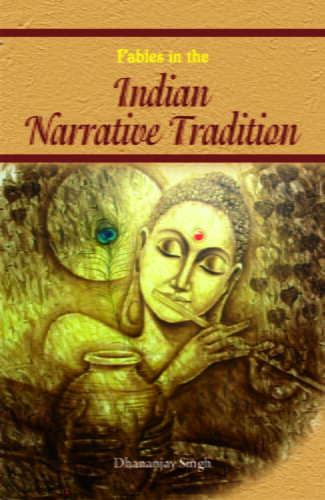
The book studies and develops an overall understanding of the Indian fables, their philosophy, mutual relationships, proliferation and textual scholarship. It also establishes the chronological development of the fables, right from the earliest utterances found in the Vedas to the epics, the Pa¤catantra and Buddhist texts.
The fable is the most metaphorical of all narrative genres. The Indian fable, being both realistic and other-worldly, is recognised as a wonderful integration of the aesthetic and the discursive. Imitating the habits, chores, beliefs of the Indian culture, it is the dominant form in texts like the Pancatantra, the Jatakas, and the Hitopadesha. It is included at different places in the long narratives of the Mahabharata and the Yogavasishtha, and is disseminated in the form of the various folktales of India. This volume explores the unique tradition of Indian fables to present a theoretical understanding and critical analysis of the various aspects of the Indian fable.
The work studies the Indian fables spread across various compositions in the context of the dominant discourses of the narratives, their form and structure and their continuing relevance. It develops an overall understanding of the Indian fables, their philosophy, mutual relationships, proliferation and textual scholarship. It also establishes the chronological development of the fables, right from the earliest utterances found in the Vedas to the epics, the Pa¤catantra and Buddhist texts. It emphasises the significance of the Indian fable as a discourse, often the narrative becoming subservient to the fables discursive function.
This interesting study will prove useful to scholars and students of Indology, particularly those concerned with Indian culture and literary tradition, as well as general readers interested in fables and stories of the Indian tradition.

The book studies various phases of ancient Indian history and culture with a fresh approach by interpreting historical information. Relying on ancient Indian literature and outside accounts and explaining facts and theories lucidly, it presents rich insights on the social, economic, political and religious life of ancient Indians.
Facets of Ancient Indian History and Culture: New Perception is an attempt to study various phases of ancient Indian history and culture in a new light and present fresh approaches to understanding and interpreting historical information and evidences. Prof. G. P. Singh here examines aspects of ancient Indian social, economic, cultural, religious and political life, propounding theories for discussion and opening up new avenues for research. Examining works on the subject by eminent scholars, he offers valuable information, full with rich insights and innovative viewpoints, on the Aryans, the Cinas, society in the period of the Buddha and Mahavira, formation of classes, castes, and social and economic associations and institutions in the latter half of the first millennium bc, religious foundations of society at the time of Manu and Patanjali, pre-Persian expeditions into north-west India and political status of Assam under the Guptas. For the purpose, he relies upon a vast number of sources from texts of the Vedic and post-Vedic period and classical accounts of the Greeks and the Romans as also historical records of the Chinese, the French and the Germans to inscriptional and other findings, interpreting them all scientifically and objectively. The study explains facts and theories lucidly and with great stress on their historical accuracy, where concerned, and value, rendering the work extremely interesting and useful to students and scholars from varied disciplines history, archaeology, anthropology and sociology.